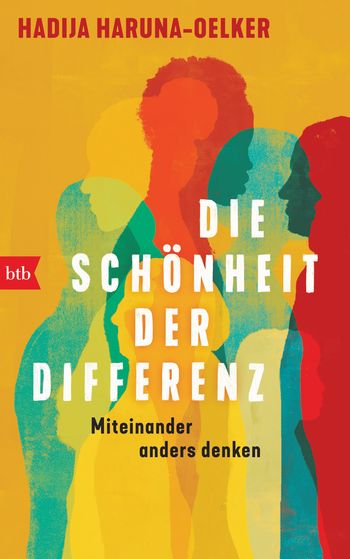
Die Schönheit der Differenz: Miteinander anders denken
Hadija Haruna-Oelker is an author, editor and moderator. She lives in Frankfurt am Main, and is an active member of the Neuen deutschen Medienmacher*innen and the Initiative Schwarze Menschen in Deutschland – which immediately speaks for her thematic interests. In her journalistic work, Haruna-Oelker focuses on racism and migration, and these themes are also central to her book, Die Schönheit der Differenz: Miteinander anders denken (The Beauty of Difference: Thinking Differently Together). But the book goes much further, thinking conscientiously and mindfully about all possible facets of social differentiation.
Die Schönheit der Differenz celebrates difference, seeks a constructive approach to heterogeneity, and in this way expresses a stance against exclusion and discrimination. One way to move in this direction is through an open and accessible discussion culture. In her book, Haruna-Oelker demonstrates what this can look like by showing how her own thinking and actions have changed over the course of her life. In doing so, she pursues the questions: How do we become who we are? How do we perceive? How do we treat each other and why? She also makes it transparent that she deliberately subjected her book to several sensitivity readings because she herself cannot represent all perspectives on society. She seeks thus to demonstrate how respectful interaction can be practiced.
While I was reading it, Die Schönheit der Differenz reminded me strongly of Emilia Roig’s bestseller Why We Matter: Das Ende der Unerdrückung, and not only because of its similar length (over 500 pages). Both books deal with the social structures that lead to and perpetuate injustice: one uses the concept of difference, the other that of oppression. Both authors advocate for change, and also use their own lives and attitudes to show that we can all – each and every one of us – contribute to greater justice. Nevertheless, the books are very different because of the use of different examples, the presentation of their respective socialization and politicization, and their individual styles. For example, while Roig covers the various facets of oppression at a rapid pace, Haruna-Oelker allows readers to participate in her own extensive reflection process, which she takes her time with. Both books are absolutely worth reading and complement each other well. They give hope!
Order the book here and support us! The work behind poco.lit. is done by us – Anna und Lucy. If you’d like to order this book and want to support us at the same time, you can do so from here and we will get a small commission – but the price you pay will be unaffected.

